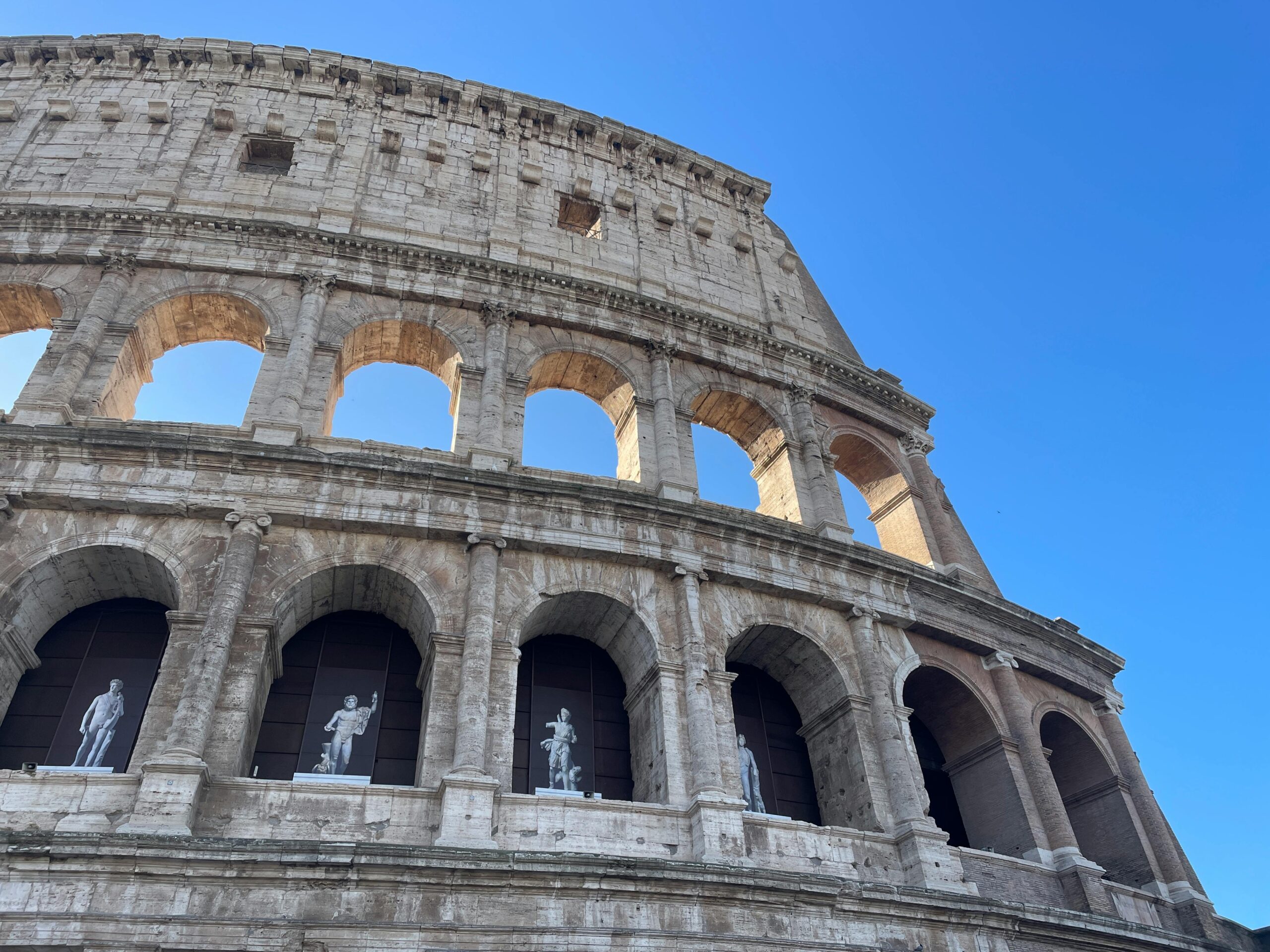While it is possible to travel to Italy without knowing Italian, having some knowledge of the language can make a significant difference in your overall experience. Italian is the official language of the country, and while many Italians do speak English, especially in tourist areas, not everyone you encounter will be fluent. By learning a few basic phrases and greetings, you can show respect for the local culture and make a good impression.
Thank you for reading this post, don't forget to subscribe!One of the most important phrases to know is “buongiorno,” which means “good morning” or “good day.” This simple greeting can be used throughout the day and is a polite way to start conversations with locals. Similarly, “grazie” (thank you) and “prego” (you’re welcome) are essential words that can go a long way in showing your appreciation and politeness.
When dining out, it’s helpful to know some basic food-related vocabulary. “Un tavolo per uno/due” (a table for one/two) will come in handy when making reservations or entering a restaurant. “Il menu, per favore” (the menu, please) will let the waiter know you’re ready to order. And when it’s time to pay, saying “il conto, per favore” (the bill, please) will ensure a smooth transaction.
Getting around in Italy can also be made easier with a few key phrases. “Dov’è la stazione?” (Where is the train station?) or “Dov’è il bagno?” (Where is the bathroom?) are important questions to ask when navigating a new city. Additionally, knowing how to ask for directions or how to read basic signs can save you from getting lost and help you find your way back to your accommodations.
While it’s true that many Italians speak English, making an effort to communicate in their native language can be greatly appreciated. It shows that you respect their culture and are willing to immerse yourself in the local experience. Learning a few key phrases and greetings can open doors, create connections, and enhance your overall travel experience in Italy.
4. Enhancing Your Travel Experience
Learning Italian can greatly enhance your overall travel experience. It allows you to fully immerse yourself in the local culture, making your interactions more meaningful and authentic. When you can communicate with locals in their native language, you open up a world of possibilities. You can engage in conversations with locals, ask for recommendations on hidden gems and off-the-beaten-path attractions, and gain insights into the local way of life that you wouldn’t have access to otherwise.
Furthermore, knowing Italian can also help you navigate the country more efficiently. While many major tourist destinations have signs and information available in English, venturing off the beaten path may require some knowledge of the local language. By understanding Italian, you can read street signs, decipher menus, and understand important information, giving you a greater sense of independence and confidence as you explore.
5. Appreciating Italian Art, Literature, and History
Italy is renowned for its rich artistic and cultural heritage. From the Renaissance masterpieces to the iconic Roman ruins, the country is a treasure trove of art, literature, and history. By learning Italian, you can fully appreciate and understand the significance of these cultural treasures. You can read Italian literature in its original form, visit museums and historical sites with a deeper understanding, and engage in discussions with locals about their country’s artistic legacy.
Additionally, speaking Italian can also give you access to a wider range of resources and information. Many scholarly works and research materials are written in Italian, and being able to read and understand them can provide you with a more comprehensive understanding of various subjects, from art history to archaeology.
6. Experiencing the Local Cuisine
Italian cuisine is renowned worldwide, and by learning Italian, you can fully immerse yourself in the gastronomic delights of the country. When you can read menus and communicate with local chefs and waitstaff, you can explore the diverse regional specialties and understand the nuances of Italian cuisine. From ordering the perfect plate of pasta to discussing wine pairings with sommeliers, speaking Italian opens up a world of culinary experiences that would otherwise be inaccessible.
In conclusion, while it is possible to get by in Italy without speaking Italian, learning the language can greatly enhance your travel experience. It allows you to connect with locals, navigate daily life more easily, make lasting friendships, fully appreciate the country’s art and culture, and indulge in the culinary delights of Italy. So why not take the time to learn a few phrases and immerse yourself in the Italian language and culture during your travels?
Useful Italian Phrases for Travelers
While it’s not necessary to become fluent in Italian before your trip, learning a few key phrases can go a long way. Here are some essential Italian phrases that every traveler should know:
1. Buongiorno (Good morning/Good day)
This is a polite way to greet people and can be used throughout the day until the evening. Italians value politeness, so starting your interactions with a “buongiorno” will set a positive tone.
2. Grazie (Thank you)
Expressing gratitude is important in any language. Saying “grazie” when someone helps you or provides a service shows appreciation and respect.
3. Per favore (Please)
Using “per favore” when making a request or asking for something politely is always appreciated. It shows that you are being considerate and respectful.
4. Mi scusi (Excuse me)
If you need to get someone’s attention or apologize for something, saying “mi scusi” is the appropriate phrase to use. It’s a polite way to interrupt or seek assistance.
5. Dove si trova…? (Where is…?)
If you’re lost or looking for a specific location, knowing how to ask for directions is essential. “Dove si trova…” followed by the name of the place or street will help you get the information you need.
6. Posso avere il conto? (Can I have the bill?)
At the end of a meal, it’s common to ask for the bill. Knowing how to do this in Italian will make the process smoother and more efficient.
These phrases are just the tip of the iceberg when it comes to communicating in Italian. However, they cover some of the most common situations you may encounter while traveling. It’s always a good idea to familiarize yourself with the local language to enhance your travel experience.
Additionally, learning a few basic phrases can also help you connect with the locals and show that you respect their culture. Italians are known for their warmth and hospitality, and making an effort to speak their language, even if it’s just a few words, can go a long way in building meaningful connections.
While it’s true that many people in popular tourist destinations speak English, taking the time to learn some Italian phrases shows that you are interested in immersing yourself in the local culture and making the most out of your trip.
So, before you embark on your Italian adventure, take a little time to practice these phrases. You’ll find that even a basic understanding of the language will make your trip more enjoyable and rewarding.
5. Immerse Yourself in Italian Culture
One of the best ways to enhance your trip to Italy is to fully immerse yourself in the country’s rich culture. Take the time to explore the local customs, traditions, and way of life. Visit museums, art galleries, and historical sites to gain a deeper understanding of Italy’s history and heritage.
Try indulging in the local cuisine by dining at authentic Italian restaurants and trying regional dishes. This will not only give you a taste of the delicious Italian food but also provide an opportunity to interact with locals and practice your language skills.
Participating in cultural activities and events is another great way to immerse yourself in the Italian culture. Attend festivals, concerts, or theater performances to experience the vibrant atmosphere and connect with the locals. Engaging in these activities will not only enrich your trip but also give you the chance to practice your language skills in a real-life setting.
6. Stay with Locals
Consider staying in local accommodations such as bed and breakfasts or guesthouses instead of large chain hotels. This will give you the opportunity to interact with locals on a daily basis and practice your language skills in a more personal setting. Many locals are friendly and welcoming, and they may be willing to engage in conversations and provide insights into their culture and way of life.
Staying with locals also allows you to experience the authentic Italian lifestyle and get a glimpse into the daily routines and traditions of the people. You can learn about their customs, traditions, and even pick up some local phrases and expressions.
By immersing yourself in the local culture and staying with locals, you not only enhance your trip to Italy but also create lasting memories and connections.
 Categories
Categories
 Discover Italy
Discover Italy
 Life
Life
 Travel
Travel
 Nature
Nature
 Explore Food
Explore Food

























